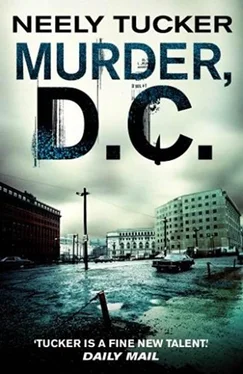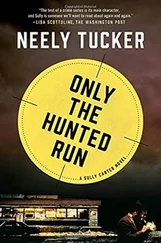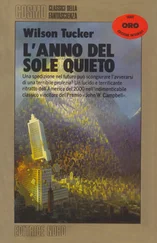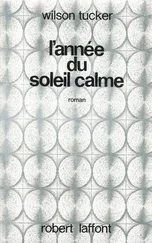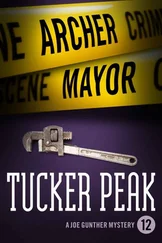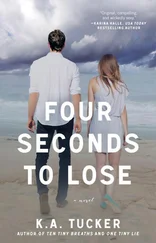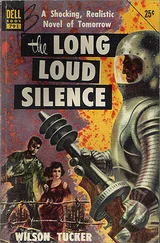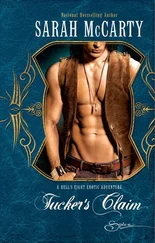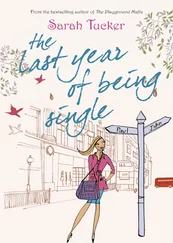Stevens did not nod or indicate that he had heard Sully. “This situation is not in any way a public news event. The family would prefer not to have Billy’s name mentioned in the newspapers at all. However, Delores recognizes her family’s social standing, and that Billy’s many, many friends and admirers would want to know of his passing. Also, to assure them that the police will, in due time, apprehend his killer. Therefore, a statement. But in this story of yours, you will not mention anything about Billy that is not mentioned in the statement given to you.”
The instructive had never been one of Sully’s favorite tenses, particularly when applied to him in this tone. He did not shake his head, and barely moved his lips. “He’s a public figure,” he said.
“A public figure?”
“You have echolalia, counselor? You hear me okay? Yes. A public figure. Billy. All homicide victims are. Police reports are public documents. As politely as I can put it, I do not need yours, or anyone else’s, permission to publish what police officers write down on criminal reports. Surely you know that. Surely you know that includes the murder of the last heir of a prominent family in the nation’s capital. So when you tell me that I won’t print anything but what you write in a statement, you know that’s bullshit.”
“Your language, Mr. Carter. What is it you think you know of Billy?”
“That he was in Frenchman’s Bend at about a quarter of midnight Monday when somebody shot him in the head at close range. Likely, this would indicate a drug deal of some nature, as that is what constitutes most killings in the Bend. Also, that he was gay.”
Stevens unclasped his hands and sat back in his chair.
“Gay,” he said.
“Queer,” Sully said. “As fuck.”
They looked at one another, the Washington game of the loser breaking the silence. Sully, playing on Stevens’s turf, let him have a home-court win.
“Elliot Cane, his partner and a fellow student at Georgetown,” he said, “says that Billy was quite familiar with that stretch of gay clubs down on O Street Southwest. Which is only a few blocks from the Bend. Which might also explain why he was there. If he was a thrill seeker who liked slumming-well you can get a blow job or a baggie down there after dark. All of that is, you know, public record, too.”
Stevens’s eyes were flat. You couldn’t even see the wheels spinning, this guy.
“Billy was not just one of my employees’ sons, Mr. Carter. He was my godson. I have known Delores’s family for a very long time. You will not drag their name through the mud so that you can sell a few more papers. You will be given a statement upon your exit. It will be spelled out for you what may and may not be printed without legal action.”
“I think you said that already.”
“There is a sentence that states Billy was successfully completing ‘recovery therapy,’ which is the only allusion that will be made about his dependence on, and trafficking in, narcotics. Billy dealt drugs. In substantial quantities. It was his weakness, some sort of street credibility issue. He wanted to appear something that he was not, which was tough, worldly. It cost him his life. However, he was never arrested and there is no”-and here he leaned forward-“public record of it. Likewise, the police have not made a final determination on where the shooting took place. So you have no standing to report that he was in Frenchman’s Bend. Libeling Billy-a dead young man who hurt no one-or his family, will be addressed appropriately. Swiftly.”
“You can’t libel the dead, counselor, but yeah, I kind of got the rest of that.”
“This is the type of story that has gotten you in trouble before.”
“I wouldn’t say so.”
“Judge Foy. It is a well-known incident.”
“Judge Foy,” Sully said, “is lucky to still have his job.”
“An irony, for you to make the observation.”
Sully smiled. This was starting to be fun. “How’s your private homicide investigation going?” he said. “You an expert now on the M Street and South Caps? You realized yet you’re out of your league?”
“Another ironic observation.”
Sully stood to go. “This has been edifying, counselor. I bet you can spell that without looking it up.”
Stevens did not rise. “If you contact Delores again, the firm will file a restraining order against you. I’m sure you’re aware that restraining orders are also public documents, and, should they become known, that you so hounded a bereaved mother to take such-”
“You’ll be on the phone, explaining all this to Eddie Winters before I get back to the office,” Sully said. “So yeah yeah yeah. I hear you barking. But all of this is going to come out in any story about Billy’s death, so save yourself the oxygen.”
“It is?” Stevens raised an eyebrow, the first time his face had so much as moved. “Where? In what publication? Other than local television and the Washingtonian magazine, no one but you has inquired, Mr. Carter. Television will go away after a day or so. The Washingtonian will mention Billy’s loss in a society column. The New York Times called but agreed to my request for non-publication of a family tragedy. So. You are the only reporter in play.”
Sully shrugged. “Then what a lousy stretch of luck for you.”
He hit the door downstairs a few minutes later, the statement tucked in a crisp envelope under his arm, the fresh air in his face, the spring sunlight washing over the Potomac. Crossing at the light and briskly now, walking for the office, checking his watch, composing the story in his head. Shellie Stevens’s Washington was rarefied air, the federal enclave. But this was not Sully’s Washington, and it was intoxicating to a different type of reporter. Yeah, the Sunday morning political talk show hosts and guests, the ones who name-dropped whose table they’d been sitting at for the White House Correspondents’ dinner, the type of reporters who posed for grip-and-grins with the sitting president at the Gridiron dinner and then put them on their mantels at home-those were reporters who would go to Shellie Stevens’s office and let a thing like the death of an employee’s son pass, chalking it up to cultivating a source, thus keeping the lines of behind-the-scenes access open to stories of national power and scope.
But those reporters were not him, and one thing he didn’t like, one thing he didn’t like at all? People in this town thinking they were better than him, and that included menace-laden motherfuckers like Shellie Stevens.
THE STORY WASglue. It was just flipping glue. A day hit, a little seven-hundred-word sashay down the journalistic boulevard of life… and the thing would not emerge on the screen in front of him.
Every time he started hammering out a lede and a couple more ’graphs, his fingers started sticking to the keyboard. Shellie Stevens, that little shit, was right: You couldn’t just say Ellison was at the Bend, because the police didn’t have the blood test back yet, and you couldn’t say it looked like he was in the Bend because of the shoe, because it wasn’t conclusive and because the police weren’t officially releasing that the shoe had been found. You couldn’t even say he was doing drugs because the toxicology wasn’t back yet, either.
“How we looking there, Sullivan?” R.J., appearing over the cubicle, looming, not pestering yet, but not far from it, either. Sully didn’t take his eyes off the screen or his fingers off the keys.
“Super most wonderful,” he said. “It’s all short skirts and cleavage.”
“I was asking because I was looking at what you’ve got in the system so far. It doesn’t look like cleavage. It looks pretty matronly, actually.”
Читать дальше
